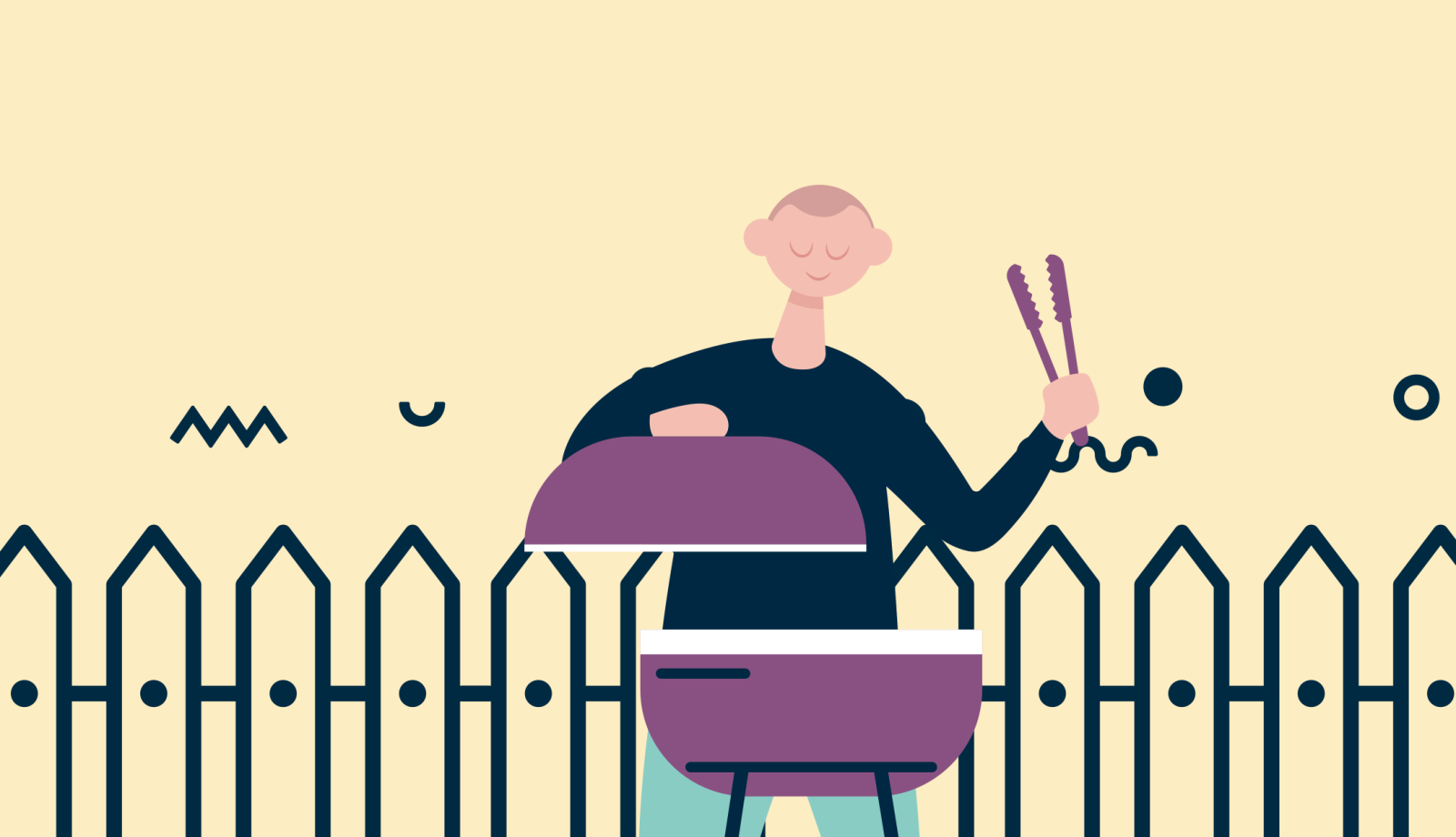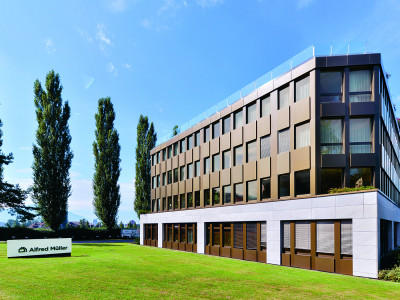
Expert advice on what is legal
Horrible noises, offensive odours, untidy stairwells: according to a study by comparis.ch, around 64% of the Swiss feel that neighbours disrupt their lives. Do they have reason to be annoyed? We asked Thomas Treichler, Head of Legal Services at Alfred Müller AG.
Late-night music, children running riot next door or upstairs, or construction works at the neighbour's premises. Noise is one of the main reasons why many neighbours fall out. However, strong odours such as the smell of barbecues or bothersome cigarette smoke penetrating through windows and doors can also make people hit the roof. Not to mention laundry rotas that are not adhered to. But they're there in black and white: rules that are intended to ensure good neighbourly and community conduct.
Embedded in the law
Article 684 of the Swiss Civil Code states that all landowners are obliged "in exercising their ownership rights to refrain from any excess detrimental to neighbouring properties". Accordingly, activities at the property next door that lead to unreasonable emissions are prohibited. Emissions such as noise or odours also include circumstances or actions which damage emotional well-being – such as running a red-light establishment in a residential building.
"The point at which an action becomes excessive or unreasonable essentially depends on the location of the property," says Thomas Treichler, Head of Legal Services at Alfred Müller AG. "Things that may be permissible in an industrial zone may be classed as excessive in a purely residential area." For instance, in an agricultural zone different criteria apply to the cackling of hens or emissions of odours from a pigsty than would be the case in a prosperous residential suburb. An objective assessment based on all the circumstances has to be made in each case. Purely subjective sensitivities do not apply.
Responsibilities, contacts, mediators
The rules that apply to residents always depend on the property. It is always the property manager's task to draw tenants' attention to these rules. The property manager is also responsible for demanding that people adhere to the house rules in the event of an infringement, and for mediating between parties in a dispute. Tenants in a condominium with different owners can take action against a neighbour who exceeds their property rights on the basis of the legal remedies of the neighbour relations law. In addition, infringement of a tenancy agreement can be asserted against the landlord.
For good neighbourly and community conduct
To remind us of what we are permitted to do and what we absolutely should not do as good neighbours so that a home is restored to that very personal oasis of well-being, Thomas Treichler sums up: "Being good neighbours is founded on consideration and tolerance. Don't do things that would annoy you personally.” The following three real-life examples show what that means in real terms.
PARTICIPATION
Should the cost of maintaining the lift be shared by condominium owners who live on the ground floor?
To some extent, the way that ancillary costs are shared among a condominium community has to be schematic. This means that not every cost factor can be allocated on the basis of who uses which facilities to what extent, or if at all. A system that assigns costs to users with 100 percent accuracy would be unachievable and simply impracticable.
It is therefore standard practice for the owners of ground floor flats to share in the maintenance costs for the lift. For one thing, they may also use the lift to get to the basement or the underground garage. If the costs-by-cause principle were to be systematically applied, an owner on the 1st floor could claim that he only ever uses the stairs because he aims to keep fit, and that he wants to be released from sharing the lift costs on those grounds.
RULES
Are you allowed to plant a hedge or put up a privacy screen?
You are allowed in principle to do that as a property owner. However, rules have to be observed about the minimum distance from the boundary and the maximum height of the privacy screen, and these vary from canton to canton. The rules can generally be found in the cantonal implementing legislation for the Swiss Civil Code. In a condominium, the condominium declaration and/or the regulations may contain additional rules or restrictions.
PROHIBITIONS
Is a barbecue on the balcony allowed?
Barbecuing on the balcony is not prohibited in principle. The general principle of most considerate use and the minimisation of emissions such as smoke or odours applies, for example by using a gas rather than a charcoal barbecue and bellows rather than chemicalfire-lighters. The point at issue is to balance interests between your own actions and the needs of the neighbour in a concrete, individual case. Whether you barbecue every day or only occasionally is also an issue.



